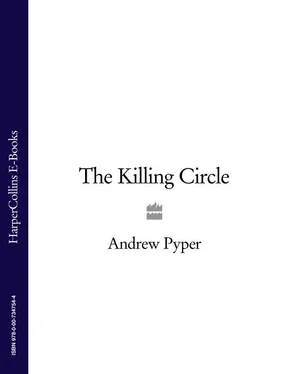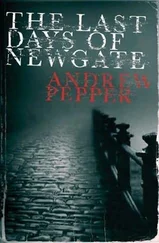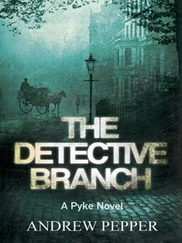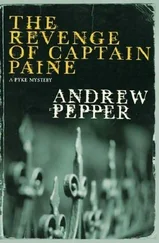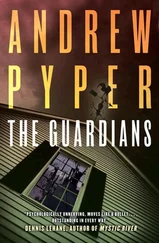Inside the door, my coat is taken by a silverhaired man wearing a better suit than any I have ever owned. A man who serves not only a different class, but a different century. My first honestto-God butler.
“The group is assembling in the Rose Room,” he says, and leads me over marble floors to a sunken lounge of leather chairs, each with their own side table, and a snapping fire in the hearth. At the door, the butler discreetly inquires as to whether I would like a drink. He says it in a way that makes it clear real drinks are included in the offer.
“Scotch?” I say, and he nods, as though my choice had confirmed a suspicion he’d had on first sight.
Most of the other members are already here. Conrad White has chosen a chair near the fire, its orange flickers lending him a devilish air which is only enhanced by the smirk he barely manages to conceal as he notes the room’s incoherent collection of Inuit sculptures, garish abstracts and bookshelves lined with leather-bound “classics”. In this context of stage-set wealth, the rest of us look like hired help sneaking a break, holding our crystal goblets with both hands so nothing might spill on the rug.
Len in particular seems out of place. Or perhaps this is because he’s the only one talking.
“You should come. You all should. How about you, Patrick?”
“How about me what?”
“The open mic. There’s a launch party for a new litmag, and then afterwards they open the floor to anyone who wants to read.”
“I don’t know, Len.”
“C’mon. You can check out what’s going on out there.”
“They have a bar?”
“Half-price beer if you buy the zine.”
“Now you’re talking.”
All of us are here now except for William and Petra, the latter clipping back and forth to the kitchen on high heels, touchingly anxious about burning the shrimp skewers. When our hostess finally sits, Conrad White decides to go ahead without William. There’s a subtle easing in all of our postures at this. I would be surprised if any of us didn’t hope that William has moved on to other creative endeavours, if not a different area code altogether.
I’m first, which is something of a relief, as the sooner I can get through the miserable couple of paragraphs I’ve brought along, the sooner I can get to work on the quadruple single malt Jeeves has poured for me.
Besides, I’m only here for one reason anyway.
Angela.
She doesn’t disappoint. I say this even though I’m not really listening. After I click my dictaphone on, I pay less attention to her words than how she speaks them. I have assumed all along that Angela was using a voice distinct from her own in her readings. Now I realize that I have virtually no idea what her “real” voice is like, or whether it would be different from the one I listen to now. She has said so little in the circle (her responses to the other readers little more than a murmured “I liked it a lot”) that it may be the at once innocent and debauched little girl tone she uses is the same as her everyday speech.
When she’s finished, no one says anything for what may be a minute. The fire hissing like a punctured tire. An ice cube cracks in Len’s tumbler of apple juice. And from the moment Angela closes the cover of her journal to the moment Conrad White invites the circle to comment on what we’ve just heard, she looks at me.
More active than staring. A taking in . Every blink marking some new observation. And I do the same. Or try to. To see inside, sort her truth from the make believe. Figure out whether she can spot anything worthwhile in me. Anything she might like.
“Wonderful, Angela. Truly wonderful, ” Conrad White says.
Everyone raises their heads. No one had noticed our silent exchange except for Conrad himself. And Ivan. Both men shifting in their chairs to find relief from an affliction I immediately recognize. A thought that, for the lonely like us, passes more than any other.
Why not me?
After the meeting, we step out into the cold night, none of us knowing which way will lead us out of the enclave’s curving streets and cul-de-sacs that discourage entry or exit. I look around for Angela, but she must have grabbed her coat before us. In any case, there’s no sign of her now.
“So, Patrick, we’re on for Tuesday?” Len asks. I look at him like I don’t have a clue what he’s talking about. Which I don’t. “The open mic?”
“Right. Yes. Absolutely.”
“’Night then,” he says, and scuffs off in the opposite direction I would guess to be the way out of here. Leaving just me and Ivan standing there.
“I know the way,” Ivan says.
“You’re familiar with this neighbourhood?”
“No,” he says, exhaling a long, yogic breath. “I can hear the trains.”
Ivan tilts his head back, eyes squeezed shut, as though savouring the melody of a violin concerto, when all there is to hear is the clacking of the subway train emerging out of the tunnel somewhere in the ravine below.
“Follow me,” Ivan says, and starts out toward the nearest doors to the underworld.
On our walk out of Rosedale’s labyrinth of oldmoney chateaux and new-money castles, enveloped in a cold-hardened March darkness, Ivan tells me he’s never hit a jumper. For a subway driver with his years of seniority, this is a rare claim. Not once has one of the bodies standing behind the yellow warning line on the platform made that incongruous leap forward. Yet every time his train bursts out of the tunnel and into the next station lit bright as a surgery theatre, he wonders who it will be to break his good record.
“Every day I see someone who thinks about it,” Ivan says as we cross the bridge over the tracks. “The little moves they make. A half step closer to the edge, or putting their briefcase down at their side, or swinging their arms like they’re at the end of a diving board. Getting ready. Sometimes you can only read it in their faces. They look at the front of the train—at me behind the glass—and there’s this calm that comes over them. How simple it would be. But in the next second, they’re thinking, ‘Why this train? If there’s another just as good coming along, why not wait? Make sure everything’s right.’ I can hear them like they’re whispering in my ear.”
“And then they change their minds.”
“Sometimes,” Ivan says, spitting over the side of the bridge on to the rails below. “And sometimes the next train is the right train.”
We walk on toward Yonge Street where it breaks free of the downtown stretch of head shops and souvenir fly-by-nights, and heads endlessly north. Ivan talks without provocation, laying out his thoughts in organized capsules. Even when we come to stand outside the doors to the station he continues on, never looking at me directly, as though he has memorized this speech by heart and cannot allow himself to be distracted. It leaves me to study his head. Hatless and bald. A vulnerable cap of skin turned the blue-veined white of Roquefort.
And what does Ivan tell me? Things I would have already guessed, more or less. Son of Ukrainian immigrants. His father a steel cutter with a temper, his mother an under-the-table seamstress, mending the clothes of the neighbourhood labourers in their flat over what was then a butcher’s, now an organic tea shop on Roncesvalles. Never married. Lives alone in a basement apartment, where he writes in the off-hours. Meandering stories that follow the imagined lives of those he shuttles here and there under the city.
“This is the first time I’ve been with people in a long time,” he says. It takes a moment to realize he’s talking about the circle. About me.
“It’s hard to meet strangers in this town,” I say.
Читать дальше
